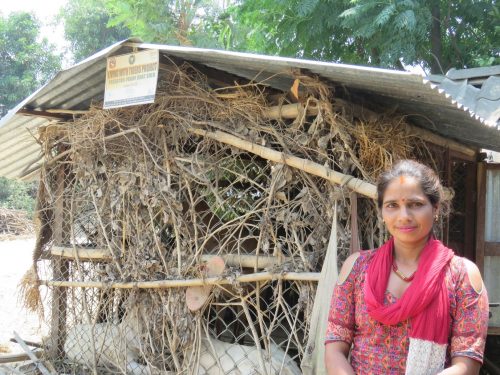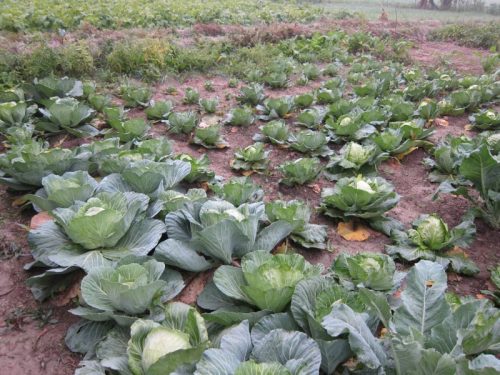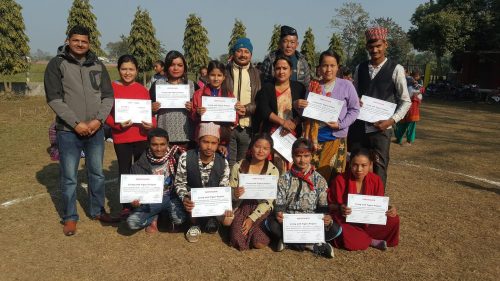As part of our Living with Tigers project, local communities had the opportunity to feedback on what they believed would make a positive impact on their day-to-day lives. The four communities we work with who live in areas bordering either Bardia or Chitwan National Parks in Nepal, expressed a strong need for horticulture workshops that would help them become less dependent on the forest for their livelihoods.
Local villagers explained that if they could grow more vegetables for their personal use and for selling at the market, this would improve their lives and make them less reliant on natural resources, resulting in reduced risk of conflict with wildlife in the forest and buffer zones.
Our Assistant Team Manager for the Gardens Team, Maile Belanger, went to Nepal in January to deliver the first series of horticulture training to the local communities that had expressed the need for it.
Delivering two-day workshops, Maile covered a range of topics including soil management, organic pests and diseases control, oyster mushroom growing and vegetable cultivation.
One of the workshops entitled ‘Love your soil and it will love you back’ focused on the importance of identifying the different soil textures (sand, silt, clay, loam) and Maile gave tips on how to improve each for growing vegetables.

Vermicompost was also of interest for the communities because it is a fantastic way of creating a nutrient-rich fertiliser and also very good seed compost at very little cost. I was able to share the success stories from our Assam Haathi Project in India where communities are now able to grow better chillies and also sell the compost made.
Maile Belanger, Assistant Team Manager for the Gardens Team
Local communities had also identified oyster mushroom growing as a topic they wanted to see covered so Maile showed them how to grow them using rice straw on a small scale.
Those first workshops turned out to be extremely popular with around 25 people attending on each day. Building on this success, and due to high demand for more workshops, a second series of workshops were organised, this time Anna Furse, Chester Zoo Horticulturist, went along to assist Maile with the delivery.
News had spread across the communities that horticulture workshops were being run again resulting in over 60 people per day attending proving the demand for such training in the Terai area.

Horticulture is what I do and have done for the last 10 years. Going out to remote places and seeing the plants we grow here at the zoo in their natural environment put our conservation work into context. It was amazing to see the difference that horticulture can make to people’s lives in Nepal, and how it can even be part of a bigger solution to tackle human-wildlife conflict.
Anna Furse, Chester Zoo Horticulturist
In addition to the theoretical sessions, the team had this time included some practical sessions, allowing attendees to have some hands-on experience and to ask questions about their own vegetable plots to our duo of horticulture experts.
Maile adds:
“In the afternoon, we constructed a demo vermicompost bin and we also visited a few vegetable patches where we were shown pests or problems villagers had. The field visits gave us an opportunity to see what issues local communities were facing and so when we covered the topic the next day we were able to reference their specific problems and solutions if available.”
“The workshops not only gave me the chance to pass on my knowledge and experience but it was also a chance for the community members to meet up and discuss their own experiences with each other!”
OUR TEAM OF EXPERTS WORK IN SIX REGIONS AROUND THE GLOBE – REPRESENTING SOME OF THE PLANET’S MOST BIODIVERSE HABITATS. Discover more about our SCIENCE AND CONSERVATION work.